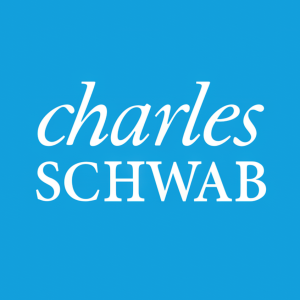Schwab 401(k) Study: Confidence Among Workers Improves as Inflation and Market Volatility Concerns Soften
Demand for advice rises as 401(k) investors grow more bullish on professional help
Inflation and stock market volatility continue to be the biggest obstacles to saving for a comfortable retirement, though workers are slightly less concerned about both factors in 2024.
Top obstacles to saving for a comfortable retirement |
2023 |
2024 |
Inflation |
|
|
Market volatility |
|
|
Workers still think they need to save
“Workers are feeling more optimistic about their retirement prospects and an improving economic climate tends to boost financial confidence, but it’s not the only factor,” said Lee McAdoo, Managing Director of Schwab Retirement Plan Services. “We’re seeing heightened awareness around 401(k) investments and performance – a promising sign that workers are actively engaging with their accounts and cultivating knowledge to help them reach their goals.”
Only
Workers: I get by with a little help from my friends
As confidence and 401(k) knowledge have improved, workers’ appetite for financial advice has increased as well.
Sixty-one percent feel their financial situation warrants advice from a professional, higher than last year (
Workers are most likely to say they seek advice directly through their 401(k) plan (
“Improved 401(k) confidence is not necessarily an indicator that workers are comfortable going it alone,” said Marci Stewart, Director of Client Experience at Schwab Workplace Financial Services. “In fact, they are realizing that professional help has the potential to further accelerate their progress. Self-guided education and computer-generated advice can provide solid financial wellness support, and a human professional can validate your plan and make more tailored recommendations, which can be invaluable for feeling more confident and financially secure in the long term.”
The emerging retirement challenge: solving the income puzzle
The survey finds that more workers would like help with creating an income stream in retirement — a possible symptom of waning confidence in Social Security.
Overall, respondents expect
Expected percentage of retirement income by source |
Within 10 years of retirement |
11 or more years from retirement |
401(k) (participant’s and spouse/partner’s 401(k)) |
|
|
Social Security |
|
|
Additional sources (e.g., investments, defined benefit plans, company stock plans, part-time work) |
|
|
Workers who are closer to retirement also have focused on investing outside their 401(k) through individual retirement accounts and brokerage accounts significantly more than those who are further from retirement. Savings accounts are popular among all workers, and a significant share of workers are using health savings accounts and company stock plans to save for retirement, too.
“Uncertainty about the future of Social Security means employers will play an increasingly important role in helping workers develop a retirement income stream not only through their 401(k), but also through other workplace financial benefits that can include health savings accounts, company stock plans and traditional pension plans,” said Stewart.
About the survey
This online survey of 1,000
About Charles Schwab
At Charles Schwab, we believe in the power of investing to help individuals create a better tomorrow. We have a history of challenging the status quo in our industry, innovating in ways that benefit investors and the advisors and employers who serve them, and championing our clients’ goals with passion and integrity.
More information is available at www.aboutschwab.com. Follow us on X, Facebook, YouTube and LinkedIn.
Disclosures
Workplace Financial Services is a business enterprise which offers products and services through Schwab Retirement Plan Services, Inc.; Schwab Stock Plan Services; and Designated Brokerage Services. Schwab Retirement Plan Services, Inc., provides recordkeeping and related services with respect to retirement plans. Schwab Stock Plan Services is a division of Charles Schwab & Co., Inc. providing equity compensation plan services and brokerage solutions for corporate clients. Schwab Designated Brokerage Services (DBS), a division of Charles Schwab & Co., Inc., provides technology solutions for corporate clients with regulatory requirements to monitor employee security transactions. Schwab Retirement Plan Services, Inc., and Charles Schwab & Co., Inc. (“Schwab”) (Member SIPC) are separate but affiliated entities, and each is a subsidiary of The Charles Schwab Corporation.
0724-C23D
View source version on businesswire.com: https://www.businesswire.com/news/home/20240724006959/en/
Mike Peterson
Charles Schwab
330-908-4334
mike.peterson@schwab.com
Carly Taylor
The Neibart Group
973-618-6993
SchwabRPS@neibartgroup.com
Source: The Charles Schwab Corporation








